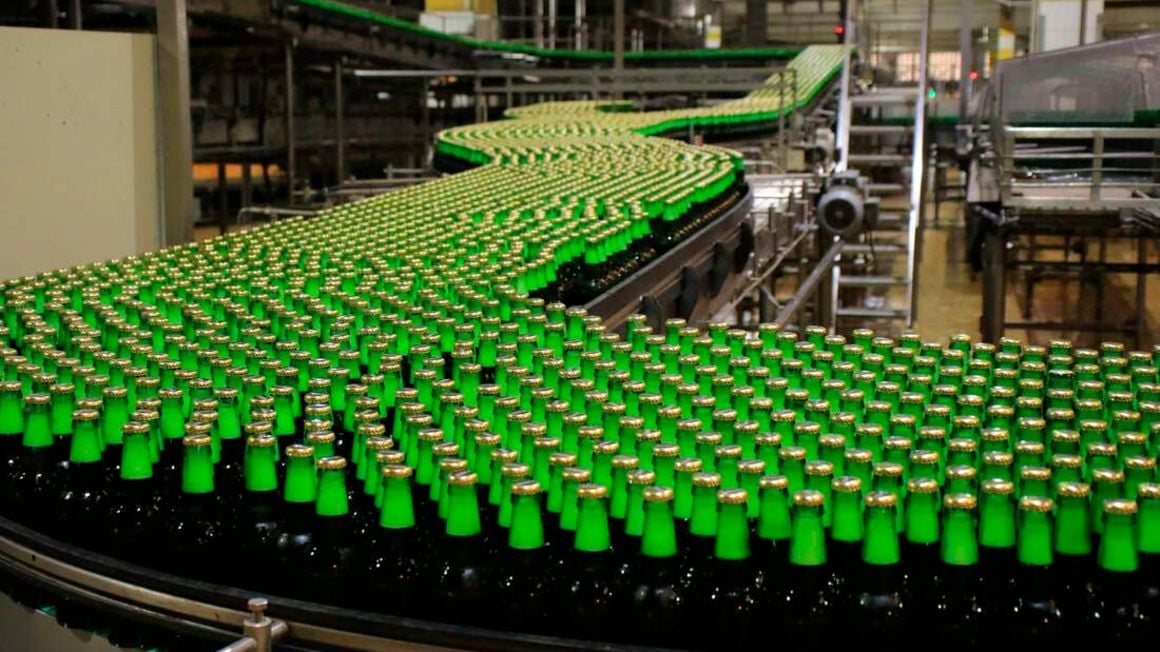
Beer production line at the EABL plant in Ruaraka, Nairobi on October 9, 2019. PHOTO | JEFF ANGOTE | NMG
East African Breweries Limited (EABL) says it will increase the prices of
its alcoholic products including beers and spirits if the Treasury implements a proposal to raise excise taxes on the products.EABL managing director Jane Karuku says a tax increase will be a shock to the business, given that the sector is still reeling from the economic aftershocks of the Covid 19 pandemic.
"I think the tax changes will be a disaster. Ten percent is too much. It will make beer and spirits very expensive. It will affect the whole ecosystem from farmers, bar owners and distributors. It will not be good for anybody," Ms Karuku said on Tuesday.
She declined to specify the planned increase but said the brewer will have no choice but to pass on the additional burden of tax to consumers if the tax proposals are adopted.
Ms Karuku told the press that with inflation rising amid higher costs of production, a tax rise would make brands expensive and increase the cost of doing business.
In the Finance Bill 2022, Treasury Cabinet Secretary Ukur Yatani has proposed to raise the consumption tax on beer by Sh12.15 per litre to Sh134, wine by Sh20.80 to Sh229, while spirits like whisky, gin, rum and vodka will attract Sh47.60 additional tax to Sh335.30 per litre.
"What do we do?" She posed to questions from the Business Daily.
"There are so many things that are going wrong from an inflation perspective: Oil prices are going to affect us, the Ukraine Russia crisis, and now we are hit with excise just when we are trying to survive Covid," she added.
Treasury Cabinet Secretary Ukur Yatani has proposed to heavily beer products by raising the excise duty.
If Treasury proposals become law, a litre of beer will attract an excise duty of Sh134 from the current Sh121.8.
The same quantity of spirits such as whiskey, gin and rum will be slapped with a higher sin tax of Sh335.30 up from Sh287.7.
Wine will attract Sh229 compared to the current rate of Sh208.2.
Mr Yatani said the higher excise, which is separate from the annual adjustment for inflation, is among new tax measures meant to help the government generate an additional Sh50.4 billion in the 2022/2023 fiscal year.
Kenyans are currently grappling with the elevated cost of living due to higher prices of many essential goods such as cooking oil, flour, milk and cooking gas.
This has forced many households, especially in the low-income segment, to reduce their shopping basket in an environment where firms have frozen salaries as they recover from Covid-19 economic hardships.
EABL more than doubled its net profit to Sh8.7 billion in the half-year ended December, helped by increased sales on the reopening of bars and pubs.
The company had made a net profit of Sh3.7 billion a year earlier.
The performance saw the brewer return to paying dividends, declaring an interim payout of Sh3.7 per share or an aggregate of Sh2.96 billion.
EABL suspended dividends after the economic crisis and closure of bars eroded its earnings in the wake of the Covid-19 pandemic. The company last paid an interim dividend of Sh3 per share for the half-year ended December 2019.
The brewer had been hit in the wake of Covid-19 restrictions, including the night curfew and reduced drinking hours in pubs.
EABL profit growth was helped by higher net sales which increased 23.4 percent to Sh54.8 billion from Sh44.4 billion.
“Across the region, we have seen an easing of Covid-19 restrictions contributing to a more favourable trading environment, as consumers return to pubs and bars,” the brewer said in a statement. “The broader economic rebound across East Africa continues to strengthen consumer demand across all our product categories, supporting our overall performance.”
In Kenya, EABL’s biggest market, restrictions on bars and pubs’ operating hours were removed in October last year.
The move helped increase net sales in the local market by 27 percent, the company said. Net sales in Uganda and Tanzania on the other hand rose 18 percent and 15 percent respectively.
bnjoroge@ke.nationmedia.com

No comments:
Post a Comment